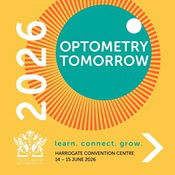Contact Lenses
Webinar to “plot the process” of detecting and managing keratoconus
Webinar to “plot the process” of detecting and managing keratoconus

The latest BCLA webinar will see senior representatives of a corneal, surgical and contact lens team “plot the process” of first detecting keratoconus and treating the condition through to potential surgical management.
The interactive online session, sponsored by Menicon, will be held from 6.30pm to 7.30pm on Wednesday, 12th May and will be presented by Prof Jonathan Jackson, Dimple Patel, Michael OfGallagher and Dr Deirdre Burns of the Belfast Health and Social Care Trust.
Titled “Keratoconus: From detection to management, experiences of a multi-professional team in Northern Ireland” the webinar will examine in detail the non-inflammatory corneal thinning disorder characterised by localised corneal protrusion and thinning on the corneal apex.
Prof Jackson, Head of Optometry at the Belfast Health and Social Care Trust, said: “The prevalence of Keratoconus (KC) is approximately 1:2000 although there are ethnic and other systemic disease differences. Presentation is generally symptom driven and suspicions are highlighted by otherwise unexplained increasing irregular myopic astigmatism.”
“Presentation is most likely during teenage years or in early to mid 20s. Late onset disease does occur and may also be associated with unilateral or markedly asymmetric disease. Many patients, on presentation, show atopic tendencies and admit to being aggressive eye rubbers.
“In early disease visual correction can be achieved through spectacle correction although painstaking accurate refraction is essential. Advice about the importance of allergic management and desisting from eye rubbing is essential.”
Miss Patel, a consultant Ophthalmic Surgeon specialising in anterior segment and corneal diseases, added: “As the condition progress specialist rigid gas permeable contact lenses are the correction mode of choice as they optimise VA through correction of ametropia and irregular astigmatism. They also resolve any issues with anisometropia. Intolerant patients may benefit from specialist soft toric or hybrid CLs. In advanced cases mini-scleral or scleral CLs are very useful providing these are fitted by those with experience with these lenses, and that patients can handle them.”
An established consultant ophthalmic surgeon, Mr OfGallagher said: “Over the last 10 years great developments have occurred in the management of KC with the availability of corneal crosslinking. This treatment is highly effective and with the exception of some corneal haze and associated blur, which usually resolves within 3/12, complications are rare.”
Dr Burns, an experienced independent prescriber who currently works in the Regional Corneal Service as well as Eye Casualty, the Glaucoma Service and Contact Lens Clinics Complex, added: gCases may in <10% of cases progress to the point where corneal grafting is required. Surgical approaches range from partial to full thickness keratoplasty. Other surgical management options including the insertion of corneal ring segments, may be suitable in specialist cases. Post-surgical visual rehabilitation often involves a return to specialist CL use and once again involves ongoing shared care management.h
To register for the Menicon-sponsored session, which is worth one interactive CET point and open only to BCLA members, visit www.bcla.org.uk.
























